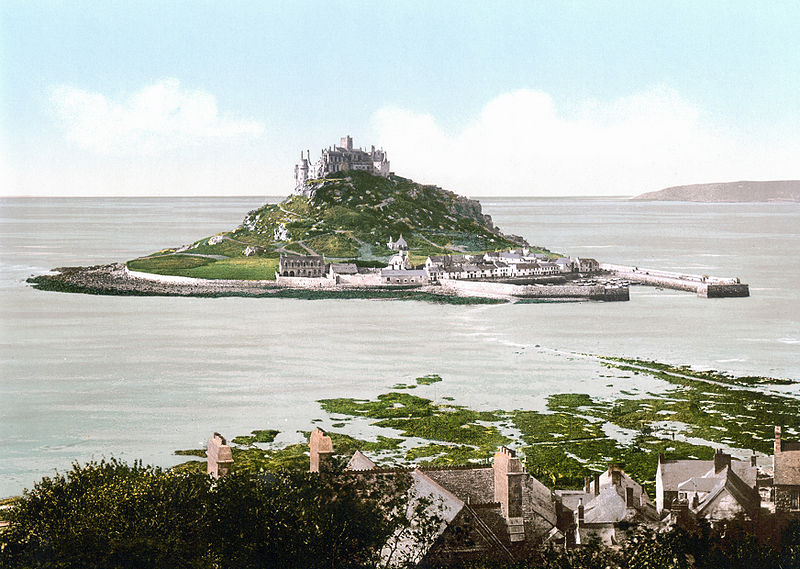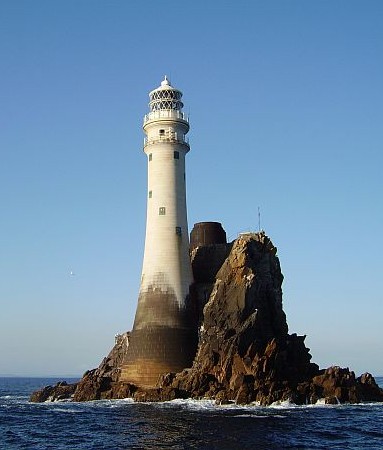I could go all metaphorical here and say that every writer is an island because ideas must spring from the writer’s head alone… But I won’t. I’m thinking about real islands and why I like them and why we humans are so fascinated by them. I also suggest some specific islands that could inspire your next story.
Islands fascinate because of their essential isolation. This has a big part to play in a story’s dramatic impact. Would And Then There Were None have had the same impact if the guests were all in a house in central London? Of course not – because at any moment they could escape into the metropolis and avoid their fate. Even if the story had taken place on a desolate moor, there would still have been the chance for the victims to get away. But on an island, trapped by the sea and a storm, the guests must face their doom.
An island setting provides instant drama: beautiful or haunting scenery, the chance to describe an enclosed community like the sad Plague Island of Venice, the possibility of being trapped by weather or shipwreck.
Islands offer the tantalising idea of exploration and discovery. Perhaps this island has never been inhabited. Perhaps no human has ever set foot on it before… Robinson Crusoe (1719) and Gulliver’s Travels (1726), two of the earliest novels in English, tap into our human love of the new and the unknown, and involve various islands.
Some islands are functional – lighthouse points, or shipping sentinels in the sea. One of my favourite stories, aged seven, was Five Go to Demon’s Rocks, where Julian, Dick and Anne, George and Timmy the dog stay in a lighthouse and, of course, solve a thrilling mystery. I will always remember the strange curved inside of the lighthouse, and that it was where I first encountered the word ‘buffeted‘.
Some islands are artificial – made for pragmatic purposes such as in Kansai, to hold an airport, or purely to realise an ambitious holiday fantasy, like Palm Jumeirah.
Fantasy and science fiction offer the notion of floating islands – either literally, an unmoored piece of land which drifts from ocean to ocean – or metaphorically, with every colony ship or space station. Stories which take place on cruise ships offer the same dramatic possibilities.
Alongside isolation come benefits – the phrase, a private island conjures an irresistible idea of glamour and secrecy, an escape for the super rich or the super recluse. Richard Branson and Barack Obama seek out islands to evade the spotlight.
Some islands might be secret for other reasons: a military installation, an illegal tests location, an island which has been struck from the map after a disaster or disease. Jurassic Park doesn’t work anywhere except on an island. Check out this list of Forbidden islands. Doesn’t just the title make you want to reach for the keyboard?
Some islands are famously mysterious – Easter island/Rapa Nui is the classic, but what about the abandoned workers’ island featured in that Bond film – or Sentinel island, where the inhabitants resist all attempts to make contact?
How about a part-time island, like Lindisfarne or St Michael’s Mount, both tidal islands, where you can walk out from the mainland at low tide?Burgh island, the inspiration for Agatha Christie’s And then there were none and also Christie’s home, is another tidal island, to which I have actually walked. (It’s awesome, and apparently the 1930s hotel is now restored. I first saw it in 1977 when it was a spooky ruin – and it’s probably the reason for my obsession with islands… The shiny new website makes me want a return visit, in style. Cocktails on the terrace and preferably no murderers, please.)
Then there are ex-islands – where silt deposits or deliberate land reclamation, have rejoined the island to the mainland; islands lost when rivers have been covered over in city improvement projects – or underwater lands like Doggerland off the east coast of Britain, submerged over the millennia. Some islands are vanishing right now as a result of rising sea levels. Inundation is a terror for all of us who live on islands, feeding off Plato’s 2000-year-old story of Atlantis and the still-real fear of a sinking ship.
The planet is creating new islands all the time. The volcanic Canary islands are still relatively new, but actual brand-new land is being thrust up from the sea near Japan. This is good news, because I crave more islands.
Reality can only provide so much island goodness, though, which leaves imaginary islands. One man has extensively mapped the imaginary Koana Islands off Madagascar. Fantasy islands on fantasy maps are the best. Sometimes they are walled, or chained, or covered in a dome of glass or ice. Sometimes they have a mind of their own and can hide or run away. They are home to magic and mystery and monsters. Reaching them is a huge challenge for the fantasy characters. These islands, even more than their real-life counterparts, hold secrets and thrills. I think it’s safe to say that in stories and in life, I love islands. Yes!
I live in an archipelago of around 6,000 islands, known collectively as the British Isles. I can’t contemplate moving to a continental landmass. My big-island home and the islands I visit for work and play are part of my writer’s psyche, and islands will always form a source of inspiration to me.
(Images – creative commons)
What’s your favourite island in life or fiction? How does it inspire you? Let me know in the comments!



Leave a Reply - let me know what you think!